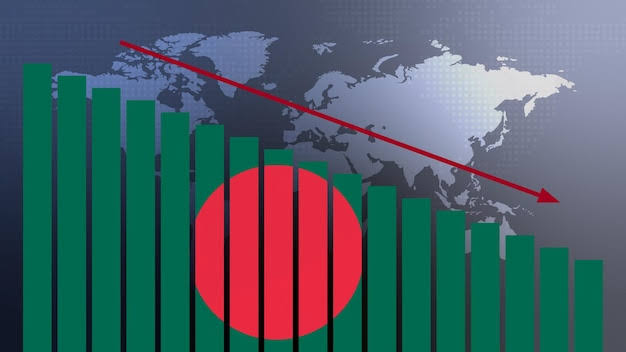02/12/2026

Escalating tensions could deepen Bangladesh’s economic woes: Experts
Staff Correspondent | Published: 2025-06-21 15:46:34

Mounting speculation over a potential full-scale war between Iran and Israel has ignited urgent warnings from economic analysts, who caution that the conflict could unleash severe consequences on the global economy, with Bangladesh’s already fragile economic situation particularly vulnerable.
Though Bangladesh maintains minimal direct economic ties with either country, its deep dependence on the Middle East for energy, labour exports and remittance inflows makes it particularly vulnerable to regional instability.
Experts caution that any disruption to Middle Eastern energy supplies or shipping, especially via the strategically critical Strait of Hormuz, could send shockwaves through the global economy, significantly affecting countries like Bangladesh.
“If Iran’s gas facilities are attacked or the Strait of Hormuz is blocked, it would severely affect the global oil and gas supply,” said Dr Mustafa K Mujeri, executive director of the Institute for Inclusive Finance and Development (InM) and former chief economist of Bangladesh Bank.
“Bangladesh would inevitably be impacted through rising energy prices, supply chain disruptions and pressure on foreign exchange reserves,” he added.
The Strait of Hormuz is a lifeline for global energy trade. Even a temporary closure could cause oil prices to surge. This would immediately affect Bangladesh’s energy-dependent sectors, including manufacturing, transportation, agriculture and services, driving inflation higher and increasing the cost of living.
Electricity generation costs will rise and industries will face higher production expenses, warned an energy analyst. “LNG imports could be disrupted, directly affecting gas supplies for industries.”
Gas prices in Bangladesh have already been adjusted upward multiple times over the past few years. A further increase in global LNG prices could escalate industrial costs, squeeze business margins and eventually impact employment.
The rising cost of energy imports will deepen the strain on Bangladesh’s dwindling foreign exchange reserves. A weaker taka will mean higher prices for other imported goods, exacerbating inflation and putting additional pressure on consumers and businesses alike.
Although Bangladesh signed a preferential trade agreement with Iran in 2006, bilateral trade remains negligible due to international sanctions. Nevertheless, the country’s broader economic ties with key Middle East nations like Saudi Arabia, the United Arab Emirates, Qatar and Oman mean any regional instability could have severe knock-on effects.
Remittance and labour market at risk
A major point of concern is Bangladesh’s reliance on the Middle East for employment and remittances. “The economy is heavily supported by remittances from migrant workers. If tensions escalate, job security and future labour demand in the region may decline,” said economist Dr AB Mirza Azizul Islam, a former caretaker government adviser.
According to Bangladesh Bank data, 6-7 of Bangladesh’s top 10 remittance-sending countries are in the Middle East. Past regional conflicts forced migrant workers to return home, resulting in both economic and social challenges.
Ongoing unrest could also disrupt air travel, make recruitment uncertain or drive up the cost of migration. “Flight restrictions or cancellations during wartime will severely limit worker mobility,” added Mirza Azizul.
Impact on export sector
Bangladesh’s export-oriented economy, especially the ready-made garment (RMG) sector, could also be hit. Delays or disruptions to shipping could result in missed delivery deadlines, cancelled orders or lost clients in Western markets. The RMG sector, which contributes the lion’s share of export earnings, may suffer significantly if global supply chains falter.
“If the war continues and spreads, it could threaten Bangladesh’s access to key labour markets and trade routes,” said Mujeri. “It’s not just about energy or remittances; it is about the cumulative impact on all critical pillars of the economy.”
“While the full extent of the fallout depends on how long and how wide the conflict spreads, Bangladesh must prepare for a possible worst-case scenario. Diversifying energy sources, building strategic reserves and reinforcing diplomatic channels with Middle Eastern countries could help mitigate the fallout,” he suggested.
In the meantime, policymakers remain watchful. The Ministry of Finance and Bangladesh Bank are said to be monitoring the situation closely, though no formal policy announcement has been made regarding contingency measures.
Editor & Publisher : Md. Motiur Rahman
Pritam-Zaman Tower, Level 03, Suite No: 401/A, 37/2 Bir Protik Gazi Dastagir Road, Purana Palton, Dhaka-1000
Cell : (+88) 01706 666 716, (+88) 01711 145 898, Phone: +88 02-41051180-81